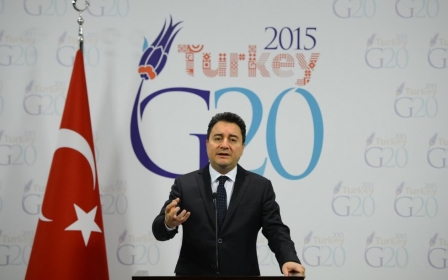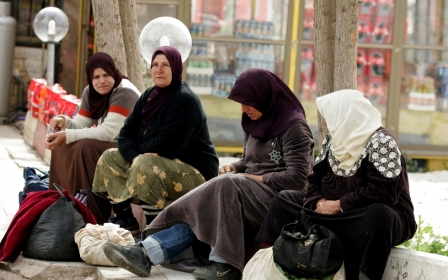EU to press Turkey on IS militants, Russia

The European Union is expected to press on Monday for more Turkish action against the Islamic State (IS), while also urge Ankara not to undermine EU sanctions against Moscow, following a recent visit by Russian president Vladimir Putin to Turkey.
EU foreign policy chief Federica Mogherini will travel to Turkey on Monday and Tuesday, Reuters reported.
"The visit ... is a strong indication of the strategic importance of the EU-Turkey relationship and our desire to step up engagement," Mogherini said in a statement.
Mogherini will be accompanied by the Enlargement Commissioner Johannes Hahn and Humanitarian Aid Commissioner Christos Stylianides in what has been described as one of the highest-profile EU visits to Turkey in years.
The visit comes as IS militants seized part of the key regime air base at Deir Ezzor in eastern Syria in fierce fighting on Saturday.
"IS mounted a dawn attack on Deir Ezzor military airport and entered several areas as fierce clashes unfolded between the jihadists and regime forces there," the Syrian Observatory for Human Rights said.
IS fighters managed to seize a missile facility in the southeast of the complex, it added.
Fighting was also reported inside Deir Ezzor city itself on Saturday.
On Friday, the Observatory said the militants were closing in on the base, nearly surrounding its beleaguered garrison.
The IS offensive against the airport began on Wednesday, and by early Saturday had resulted in the deaths of 121 people on both sides -- 70 militants and 51 members of pro-government forces, it said.
The Deir Ezzor air base is a key government outpost from which warplanes and helicopters mount raids on IS positions in several areas of the war-wracked country.
IS fighters control most of Deir Ezzor province, but half of its capital remains in government hands.
The oil-rich province lies between IS-controlled Raqa province and the border with Iraq, and is a key prize for IS.
Turkey bans entry to more than 7,000 foreign fighters
More than 7,000 suspected foreign fighters travelling to Iraq and Syria have been banned from entering Turkey, the country's Foreign Minister has announced.
Mevlut Cavusoglu's comments came on Friday as counter-terrorism methods took centre stage on the final day of a two-day ministerial council meeting of the Organization for Security and Cooperation (OSCE) in Basel, Switzerland.
Cavusoglu said: "Our 'no enter' list of suspected foreign terrorists has now more than 7,200 names and we have deported more than 1,050 since 2011.
"Yet we still observe the flow of terrorist fighters ... and in some cases, those we deport end up at our border gates again."
He said: "The issue of foreign terrorist fighters is a global threat. We have seen these symptoms in the past in Afghanistan, Iraq, Kenya, Libya, Tunisia, Chechnya and Somalia.
"Now we see them not only in Syria or Iraq, but also in eastern Ukraine and in other parts of the world."
He added: "Today, the threat we face in Syria or Iraq cannot be isolated from the past and we should make use of the lessons learnt.
"We cannot prevent this threat by diverting the smoke coming out of the big fire in Iraq and Syria. We have to extinguish this fire."
Turkey maintains the international community's inaction to the crisis in Syria and the sectarian policies of the Shiite-led former Iraqi government has prepared the ground for al-Qaeda to re-emerge in Iraq and Syria.
Cavusoglu said: "It grows stronger under the name of 'Daesh' [IS] in a symbiotic relationship with the regime in Syria."
"Only addressing the foreign fighters would not solve the problem - we need a comprehensive strategy that includes rehabilitation, de-radicalisaiton ... nation- and state-building, in addition to the military and law-enforcement measures," he said.
New MEE newsletter: Jerusalem Dispatch
Sign up to get the latest insights and analysis on Israel-Palestine, alongside Turkey Unpacked and other MEE newsletters
Middle East Eye delivers independent and unrivalled coverage and analysis of the Middle East, North Africa and beyond. To learn more about republishing this content and the associated fees, please fill out this form. More about MEE can be found here.




